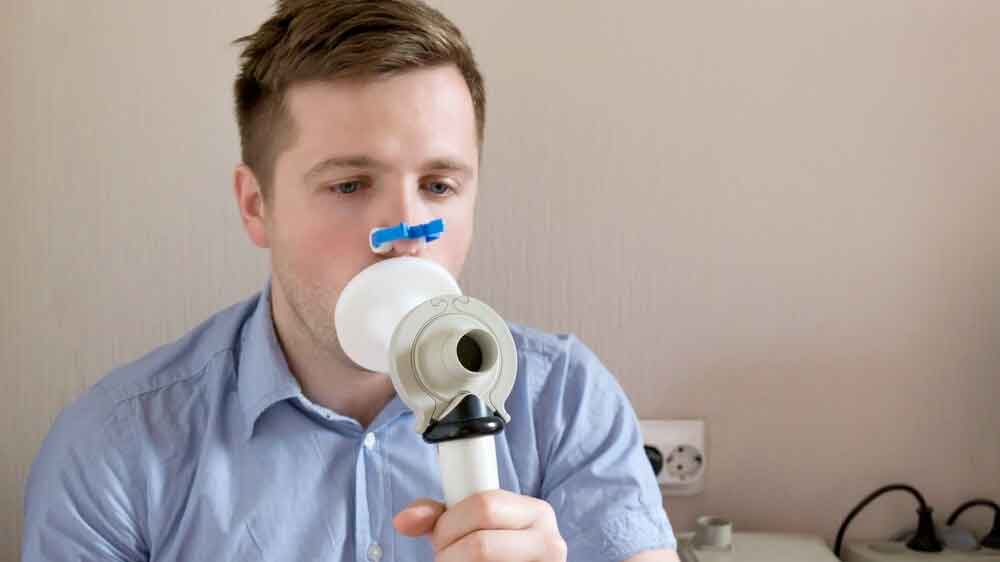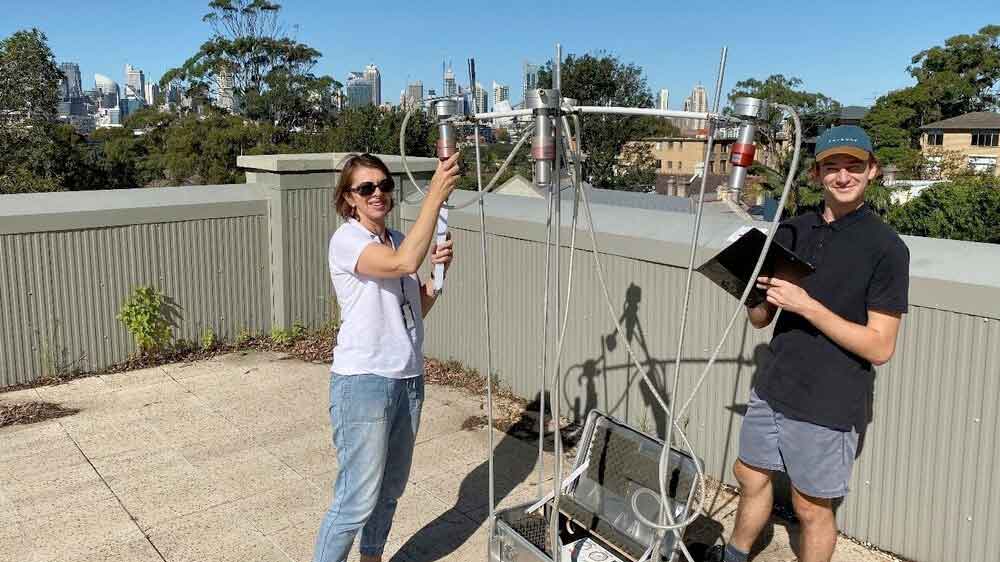The Woolcock Institute of Medical Research

Reflections on asthma – the community pharmacist
Sarah Serhal has been working in community pharmacies since 2013. How has asthma management changed over that time for pharmacists? What has stayed the same? What are the big challenges for community pharmacists?
Here Sarah shares her thoughts with the Woolcock's Professor Sinthia Bosnic-Anticevich.
What was it like working with people with asthma when you first became a pharmacist?
Back then, people had asthma cards. When patients came in and asked their pharmacist for a Ventolin puffer, we would have to record the date and our pharmacy ID.
When I started, there was a large proportion of patients who were solely using SABAs (Short-Acting Beta 2 Agonists) – for example Ventolin – to manage their asthma. Over the years I've witnessed health professionals becoming more aware of the importance of inhaled corticosteroids and preventative measures, and a bigger push to relay this message to patients.
How did asthma cards affect the interaction between pharmacists and patients?
When a person had to present their card to be given a Ventolin inhaler, we could see the date they had last purchased it. So right there in front of us was an indication of how often they were using their reliever. So, the card acted as a prompt to start a conversation about their reliever use, their symptoms and overall medication management.
When you ask these sorts of questions, you get an indication of what else they're doing and how you can help them achieve better asthma control.
When the cards were phased out, we didn't have that physical prompt. Pharmacists were left to their own devices to initiate those conversations with patients.
How have patients responded to the new approach?
Checking off asthma cards may have appeared as if the pharmacist was policing a patient. Without the cards, when it relied on me sparking up a conversation and showing interest in our patients’ asthma management, it became more of a personal conversation. Patients generally responded well to this.
Where I would see the most progress was among patients I saw regularly, where I had a chance to build a relationship. When this is possible, you do see patients taking your advice, stopping for a chat, and wanting to tell you how they are going. It does make your job a little easier, not feeling like you're imposing on them, not feeling like you're prying too much.
It's a fine balance between policing and trying to give them helpful information. It becomes a much easier task when a rapport is built.
What's your main tip for a person with asthma?
I'm a big believer in patients sticking with one doctor and one pharmacist. Find a pharmacist you trust and enjoy talking to, and stick to them. It’s not only going to benefit you in terms of continuity of care, it's rewarding for both yourself and for us health professionals and your health outcomes can only improve from a good collaborative relationship.
Consistency is so important for chronic care management. Sometimes you're going to have months and weeks when your asthma is great. Sometimes you're going to have months and weeks when your asthma is not so great. By seeing the same people, they might recognise patterns that you might not recognise. They might know of something new that you haven't used before.
Part of the pharmacist's role is to educate, and help you make good health choices. Which sometimes requires us to be persistent with certain messages. So, if you' re seeing that same person and they're delivering the same message, it's going to hit home sooner than if you're getting disjointed messages from different health professionals you visit one at a time.
What do you think is the pharmacist's greatest challenge?
I think we are facing many of the same challenges today that we did back when I started. Often patients underestimate their symptoms, the importance of using a preventer, and the risks involved in over-using their reliever. They also may underestimate the importance of technique in using these devices.
I think it's our job to help patients address perception deficits and provide appropriate counselling to better understand the risks and benefits of their health choices. Shifting the long-held belief that asthma and associated symptoms are something patients have to live with for the rest of their life to 'I can improve my asthma symptoms, by improving my asthma management'.
In some ways, we're facing the same roadblocks we did in the past. However, more research into understanding patient behaviours and perceptions will provide pharmacists with better tools to help asthma patients navigate these risks. And with the emergence of clinical pharmacists within pharmacies and the availability of consultation rooms, we're in a better position to overcome time and privacy concerns that may have proven barriers in the past.
About Sarah
Sarah Serhal is a community pharmacist with a Masters in International Public Health. She is currently completing doctoral research within the Clinical Management Group at the Woolcock Institute of Medical Research.
Sarah is passionate about finding meaningful ways in which to assist her community and is also an accredited mental health first aider and currently assisting the COVID-19 vaccination rollout as a pharmacist at mass vaccination hubs and outreach clinics across Sydney.
More stories from the front line
This is the third in our series of interviews for Asthma Week 2021. See the other interviews in Reflections from the asthma front line.
Find out more
- About our asthma research
- News from our respiratory research
- We’re proud to be part of the Air Nutrition – you are what you breathe campaign for Asthma Week 2021
Support our work
The Woolcock Institute of Medical research is a not-for-profit research institute. Your tax-deductible donation to the Woolcock will help us improve the quality of life for people affected by breathing disorders like asthma.
Here are some examples of what your donation can do.












